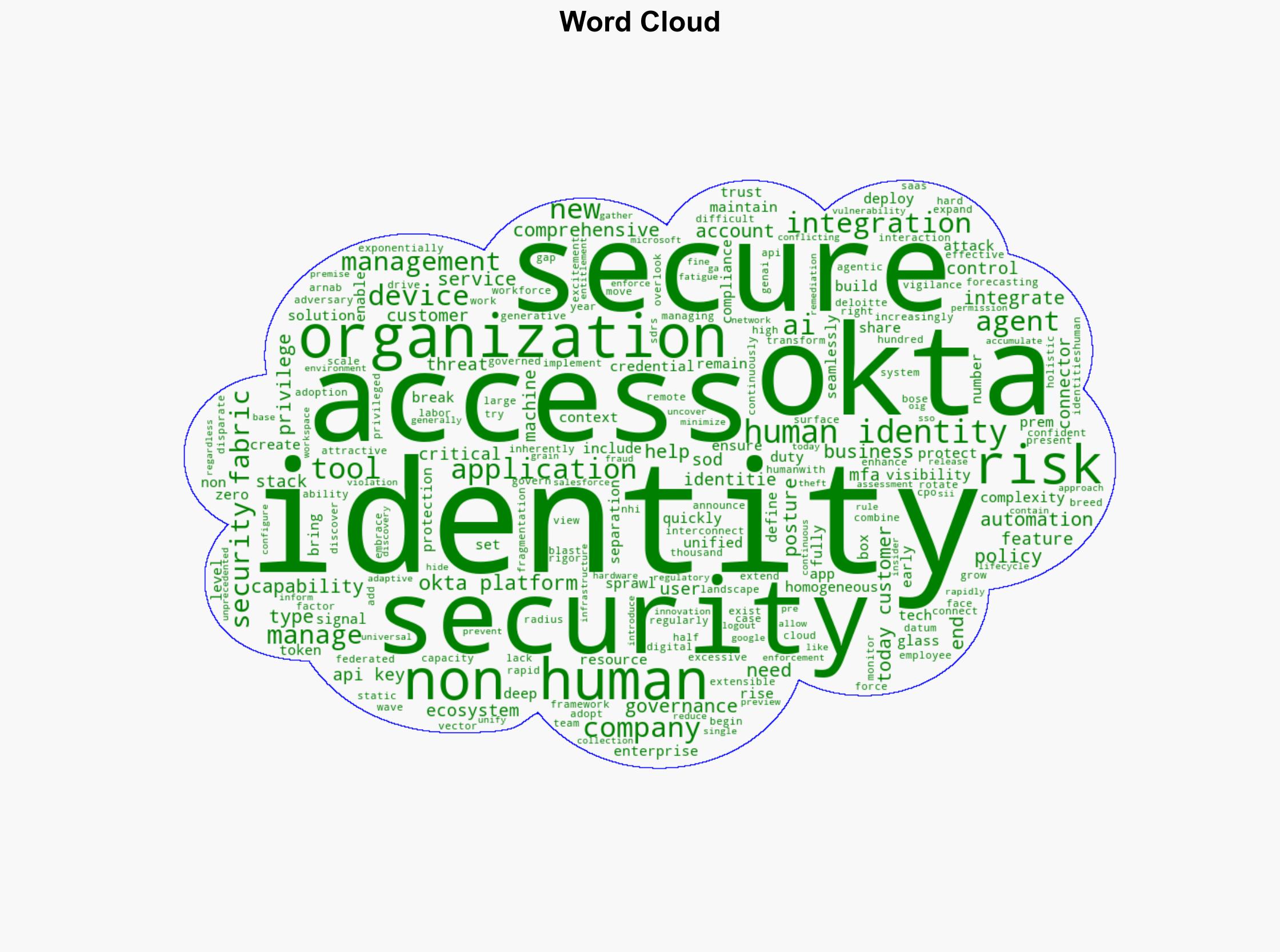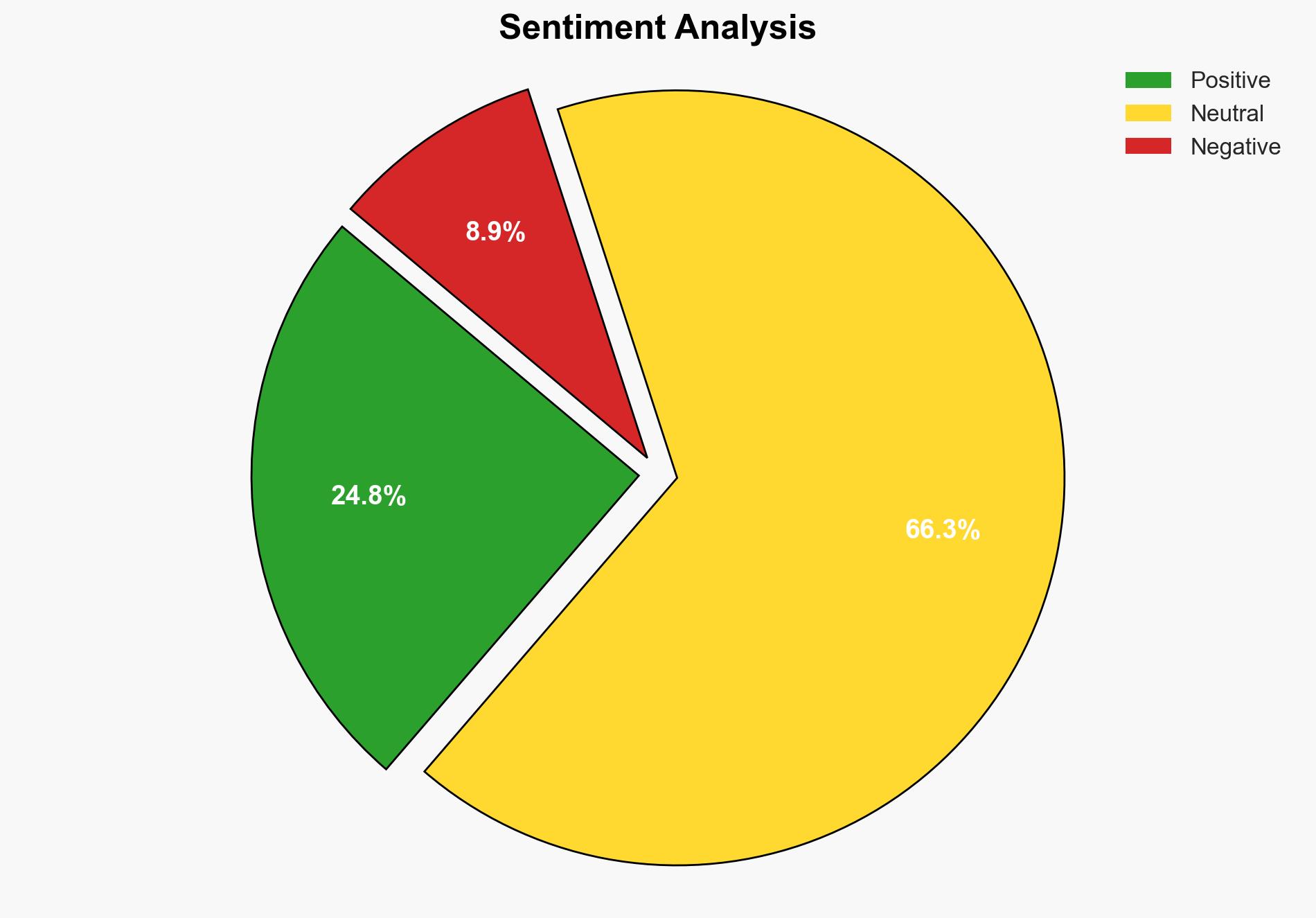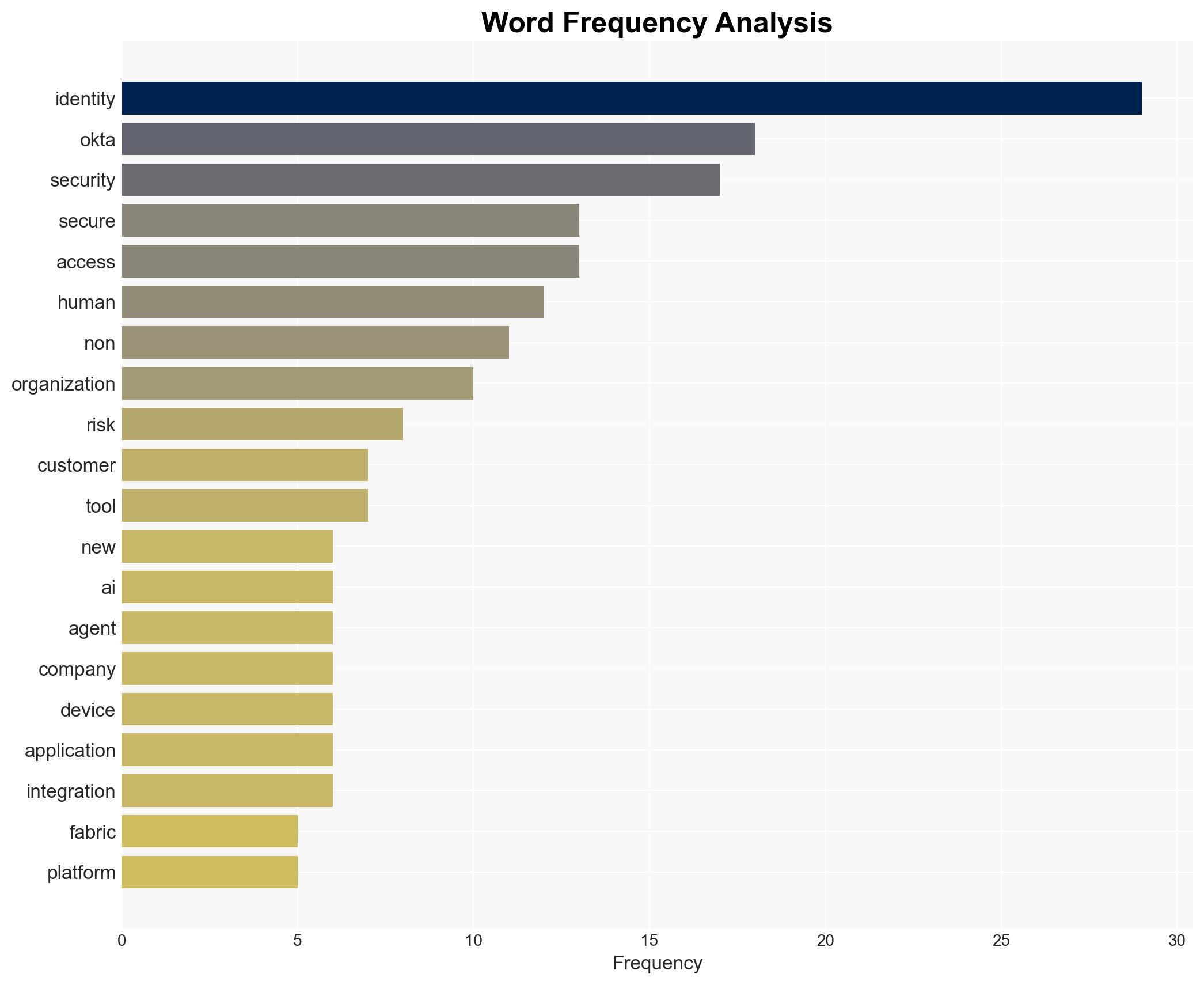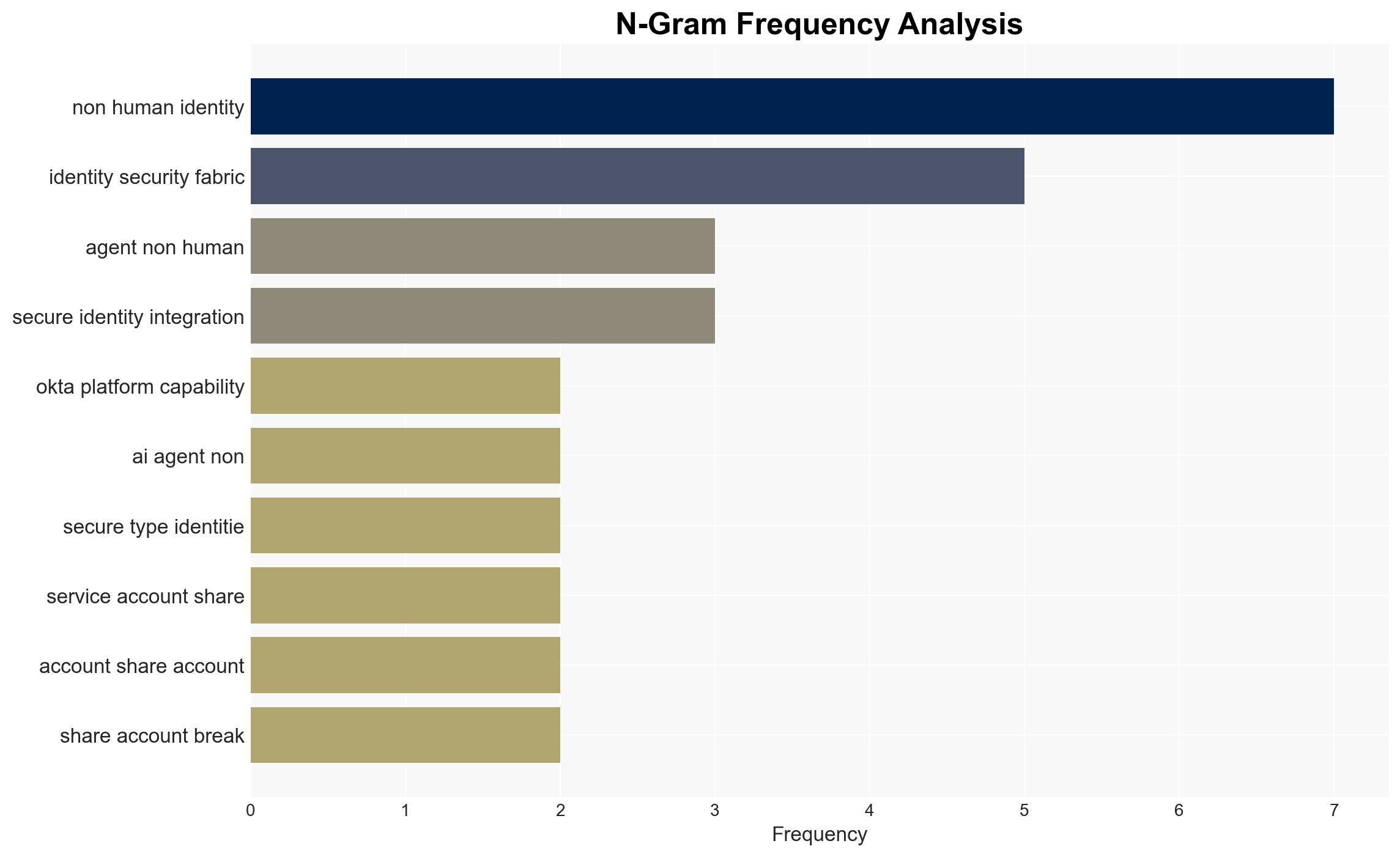Okta extends identity security fabric to non-human identities – Help Net Security
Published on: 2025-04-09
Intelligence Report: Okta extends identity security fabric to non-human identities – Help Net Security
1. BLUF (Bottom Line Up Front)
Okta has announced enhancements to its platform to secure non-human identities, such as AI agents and API keys, with the same level of security as human identities. This move addresses the growing complexity and security risks associated with the proliferation of non-human identities in digital ecosystems. Organizations are advised to adopt a unified identity security framework to manage this complexity effectively.
2. Detailed Analysis
The following structured analytic techniques have been applied for this analysis:
General Analysis
The expansion of Okta’s identity security capabilities to include non-human identities is a strategic response to the increasing use of AI and automation tools in business operations. Deloitte forecasts significant growth in the adoption of AI agents by 2027, highlighting the urgency for robust security measures. Non-human identities pose unique challenges due to their static credentials and lack of multi-factor authentication, making them vulnerable to cyber threats. Okta’s platform aims to provide a comprehensive security fabric that integrates these identities into existing security frameworks, thereby reducing potential attack vectors and enhancing overall security posture.
3. Implications and Strategic Risks
The integration of non-human identities into identity security frameworks is crucial for maintaining data integrity and preventing unauthorized access. Failure to secure these identities could lead to significant breaches, impacting national security, regional stability, and economic interests. The rapid deployment of AI agents without adequate security measures could exacerbate identity sprawl, increasing the risk of cyberattacks and data leaks.
4. Recommendations and Outlook
Recommendations:
- Organizations should implement a unified identity security framework to manage both human and non-human identities effectively.
- Adopt advanced identity tools that support multi-factor authentication and regular credential rotation for non-human identities.
- Regulatory bodies should consider developing guidelines for the secure deployment of AI agents and automation tools.
Outlook:
In the best-case scenario, organizations will successfully integrate non-human identities into their security frameworks, reducing the risk of cyber threats. In the worst-case scenario, failure to secure these identities could lead to widespread data breaches and significant economic losses. The most likely outcome is a gradual improvement in identity security practices as awareness of the risks associated with non-human identities increases.
5. Key Individuals and Entities
The report mentions Arnab Bose as a significant individual involved in the announcement of Okta’s new platform capabilities. The organization Okta is central to the developments discussed in this report.




